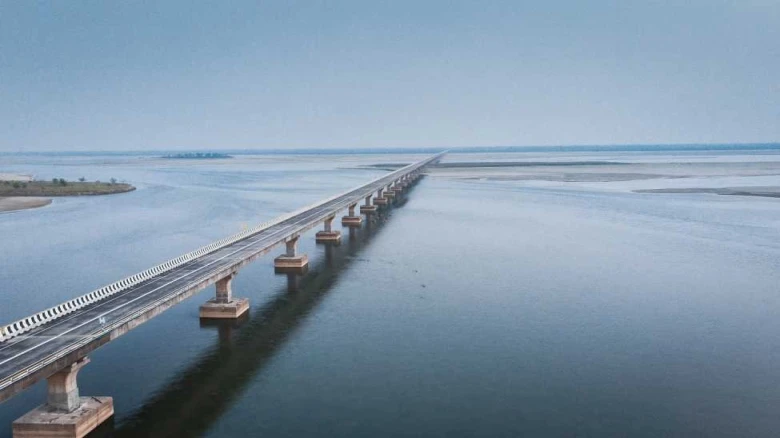It also mentioned how manmade activities and changing climate patterns could have catastrophic effects on almost a billion people in the region.....
Digital desk: According to a recent analysis, the major river basins of South Asia, namely the Brahmaputra, Ganges and Indus are expected to be significantly impacted by climate change.
It also mentioned how manmade activities and changing climate patterns could have catastrophic effects on almost a billion people in the region.
A climate-resilient approach to river basin management is urgently needed, according to the paper "Elevating River Basin Governance and Cooperation in the HKH Region" on these three rivers.
The freshwater resources of Southeast Asia and parts of South Asia are found in the Hindu Kush Himalayas (HKH). The ten greatest river systems in Asia are fed by water from their snow, glaciers, and rainfall.
In the Brahmaputra watershed, climate change -- coupled with dams and development activity -- is poised to intensify flooding and droughts, particularly in its lower basin.
Increases in glacial melt rates are predicted, which will affect the region's water supply. There aren't any significant water diversions in the basin at the moment, but the report noted that millions of people could be impacted if downstream dry season flows are reduced due to upstream dam development and climate change estimates.
There are also increasing environmental dangers to the Ganges basin, which is considered sacred and vital to over 600 million people in the Indian subcontinent. The ecological health of the river has been negatively impacted by high agricultural practices, urbanization, and rapid industrialization.
According to the research, the water is seriously contaminated due to the careless release of sewage and industrial waste, which presents serious hazards to public health and the environment.
In addition to these human-caused activities, it stated that the effects of climate change are making already-existing problems worse, especially in the form of increasing droughts and floods.
Critical for restoring water supplies, the monsoon season now brings severe floods, while dry seasons exacerbate water scarcity, particularly in downstream regions like Bangladesh. The research also stated that vulnerable groups, such as women, individuals with disabilities, and marginalized communities, are disproportionately affected by these climate-related hazards.
Similarly, climate change is putting the Indus River, which provides a vital source of water to over 268 million people in Pakistan, India, Afghanistan, and China, under unheard-of strain. Environmental deterioration, unpredictable monsoons, and rising temperatures are driving the basin toward a disaster.
According to the research, the Indus basin is experiencing enormously negative effects from climate change that threaten livelihoods, food security, and water security.
The health and sustainability of the basin are already being significantly impacted by changes in the timing and intensity of the monsoon rains.
Furthermore, the research stated that environmental deterioration, which includes an increase in industrial and agricultural pollutants, is deteriorating the riverine environment, negatively impacting freshwater fisheries, and weakening the river's biological integrity.
According to the paper, despite the urgent need for collective action, governance within these basins is fragmented, with limited international agreements supporting basin-wide coordination. Existing treaties and accords have often failed to address the broader implications of climate change or incorporate the excluded parties.
As these accords approach expiration, there is a chance to embrace more inclusive and resilient approaches to basin governance, using multiple viewpoints and experiences.
In light of climate uncertainty, the research suggests that inclusive policies, adaptable infrastructure, and flexible governance structures should be given top priority in long-term initiatives to guarantee a steady supply of water.

Leave A Comment